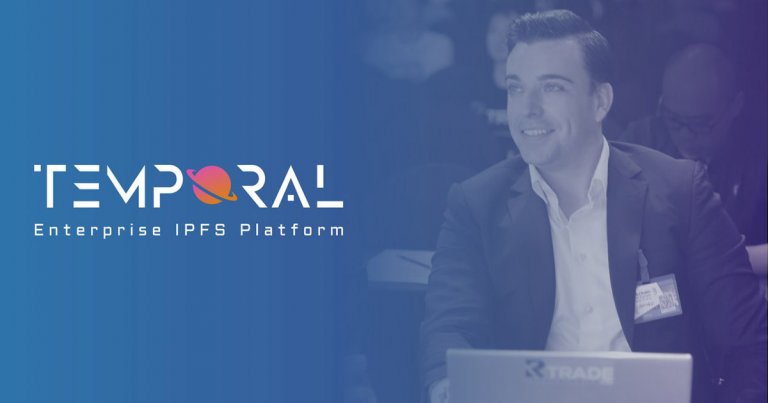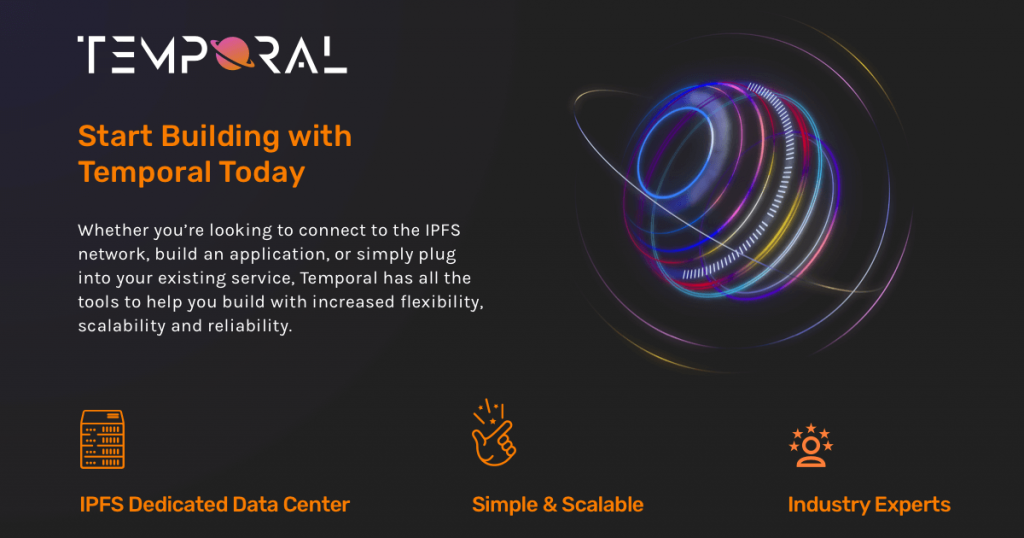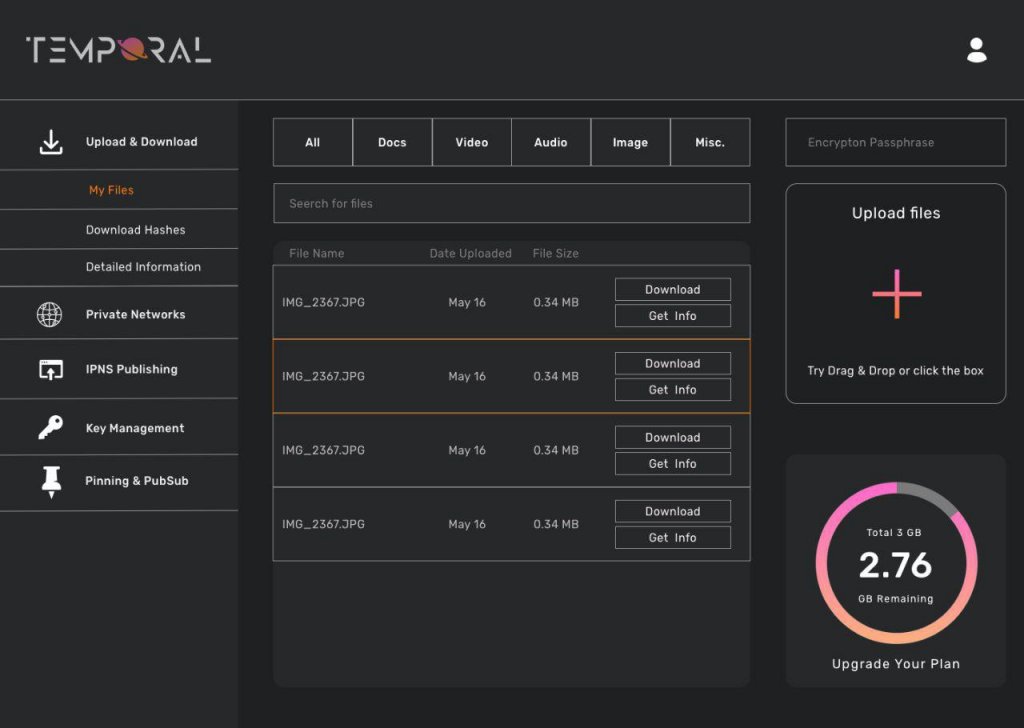 RTrade CEO talks Interplanetary File System (IPFS) – potential applications, challenges of good user experience for crypto/web3 devs, ETH 2.0 & ENS Domains
RTrade CEO talks Interplanetary File System (IPFS) – potential applications, challenges of good user experience for crypto/web3 devs, ETH 2.0 & ENS Domains RTrade CEO talks Interplanetary File System (IPFS) – potential applications, challenges of good user experience for crypto/web3 devs, ETH 2.0 & ENS Domains

Cover art/illustration via CryptoSlate. Image includes combined content which may include AI-generated content.
Derrick Foote is a Canadian web 3.0 entrepreneur dedicated to helping build Web 3.0 with trust and transparency, giving back data freedom and control online to the users. Actively involved in the Blockchain space since 2013 and a graduate of Oxford University Blockchain Strategy program, Derrick has spent years educating people on blockchain technology, managing many high tier OTC deals, commercial mining and finally for the past three years has shifted towards Blockchain and IPFS (interplanetary file system) software development.
In 2017 he started Temporal, a scalable IPFS Infrastructure to build production-ready applications on top of IPFS quickly with modern tools and languages such as Golang and JavaScript.
With such a science-fiction-sounding name, IPFS is a bit of a misunderstood topic. In this interview, we touched on potential IPFS applications, the challenges of building good user experience for developers, the impact of Ethereum 2.0 and much more.
What is your professional background and how/when did you get into crypto?
DF: I fell into crypto around 2013 when I was introduced to Bitcoin. I immediately saw the vision of what Satoshi was trying to accomplish and the power it could unlock in the future. My curiosity led me to dive deeper and deeper into the technology. Next thing I knew I was refreshing the price of Bitcoin ten times a day for the next five years. I started to focus on education and started a little community called Rally Trade to help crypto enthusiasts in different fields to come together, learn and grow as a team. We’ve done a lot of work to reduce the risk of hacks, beginner mistakes and scam projects in the space. My love for blockchain technology grew even deeper and I met a bunch of great people because of this community. Soon after I decided to self fund a technologies company with a focus on blockchain called RTrade Technologies ltd, stepping into GPU mining first and moving on to blockchain development, including smart contracts and IPFS development. Since then we have completed a successful pre-seed round, have had some major blockchain development contracts, amazing products and picking up traction in the space.
Tell us about why you decided to start Temporal. What is the mission?
DF: We dove into the Temporal project in early 2017 when our co-founder, who I meet through the Rally Trade community, and lead developer Alex Trottier introduced me to IPFS. I immediately became fascinated and we shared the same enthusiasm for the technology and how its three key features such as content addressing, data verification and de-duplication were going to change the online world for the better, fixing a lot of the current issues surrounding HTTP. We recognized that we needed to help users and enterprise operations to understand and adopt the technology, as there was no one in the space doing this at the time. We wanted to focus on creating the infrastructure that would not only support Web 3.0 but help people build and plug into this technology, enabling mainstream adoption.

Where is your team located and why did you choose that jurisdiction?
DF: Vancouver, Canada simply because it is home for a lot of our core members on our team. It’s also where our dedicated IPFS data center is located which allows us to build and improve on IPFS for our clients and users.
What are some of Temporal’s notable achievements or milestones?
DF: An amazing achievement is that we are the only IPFS platform not built on cloud services leading to extreme savings for the users by not getting hit with high data storage, CPU hours, bandwidth costs. This is to ensure you can confidently store your data knowing that we maintain full ownership of the hardware and aren’t subject to a cloud-based provider randomly decommissioning our services.
RTrade also achieved several other great milestones for IPFS that we are very proud of including the first Amazon S3 compatible IPFS client, IPFS WeChat mini-app, Full-Service IPFS website, our Dedicated IPFS Data Center, IPFS Amazon S3 API Client, and tools to manage private IPFS networks.
What are the benefits of using Temporal as opposed to other IPFS solutions?
DF: Pricing, functionality, scalability, and security. With Temporal you will be able to utilize all IPFS has to offer with additional features such as encryption, and built-in IPFS search engine. By leveraging our dedicated IPFS data center we offer the cheapest hosting service in the space by about 60 to 70 percent starting at $.05/GB and 3GB for free. Our infrastructure and tools allow our clients to easily scale up or down as needed. We have an incredibly robust backup and redundancy measurements in place when it comes to IPFS in addition to an extensive privacy policy that includes a guarantee never to share or sell user data.

What is misunderstood about IPFS?
The biggest misconception out there is that IPFS is a free magic storage cloud where you can upload content to it and it never goes away.
What will be some of the most used IPFS applications in the future?
What can you tell us about the Temporal product roadmap? What upcoming features are you most excited about rolling out?
I think in the future the most used IPFS applications will be content delivery networks, and we will start seeing IPFS being used in all aspects of data archival and management.
DF: I am most excited about rolling out integration with ENS Domains which will allow you to host your IPFS website quickly with an ETH domain allowing you to be Web 3.0 ready. Next would be our S3-compatible API, you will be able to set any application that uses S3 to use IPFS without any modifications. I’m also very excited about multi IPFS network capabilities. Finally, Kubernetes to scale Temporal Cloud to interplanetary means. Kubernetes will allow us to create and scale highly available IPFS clusters on command. Along with finer control for monitoring and configuring an IPFS cluster.
What are the biggest challenges of building an IPFS service for developers?
DF: Besides enhancing the performance and functionality of IPFS, a major challenge we face with both IPFS and the blockchain space as a whole is to create a better UX/UI. We need to allow people to easily navigate and click a few buttons to get the benefits of a platform without requiring expert-level knowledge.
What other projects and/or blockchain developments are you most excited about?
DF: This changes all the time, however, currently ENS Domains. It has bridged the gap in the industry, and it is going to go a long way as a crucial application for Web 3.0.
What do you think the impact ETH 2.0 will have on the developer community?
DF: If ETH 2.0 goes as planned, it will reduce a lot of the limitations that developing applications on Ethereum has such as transaction costs, slowness, etc. With ETH 2.0 we will be able to create the next generation of dApps and bring ETH closer to being the world computer. I am personally excited about the rollout as they have a great team with loads of talent and a top-tier community.
Do you have any blockchain and/or crypto predictions for 2020 and beyond?
DF: A massive BTC pump before the halvening.
What are the biggest obstacles for the mainstream adoption of crypto?
DJ: Regulation. Technology always outpaces regulation and unfortunately always has to slow down when regulations try to catch up. We also need more use-cases. There need to be more use-cases for real-world applications besides just trading and gambling.
What is your most controversial opinion relating to blockchain and/or cryptocurrency?
DF: Craig Wright is the real Satoshi. Just kidding, you said controversial, not insane. My most controversial opinion is that a lot of blockchains that claim to be decentralized are far from it. It really grinds my gears when I look deeper into the technology only to find centralization.
For more information:
- Learn more about Temporal
- Learn more about RTrade Technologies
- Learn more about Derrick Foote
- Follow Temporal on Twitter
- Follow Derrick on Twitter
Disclosure: Temporal is an advertiser on CryptoSlate but this is not a sponsored story.

























































